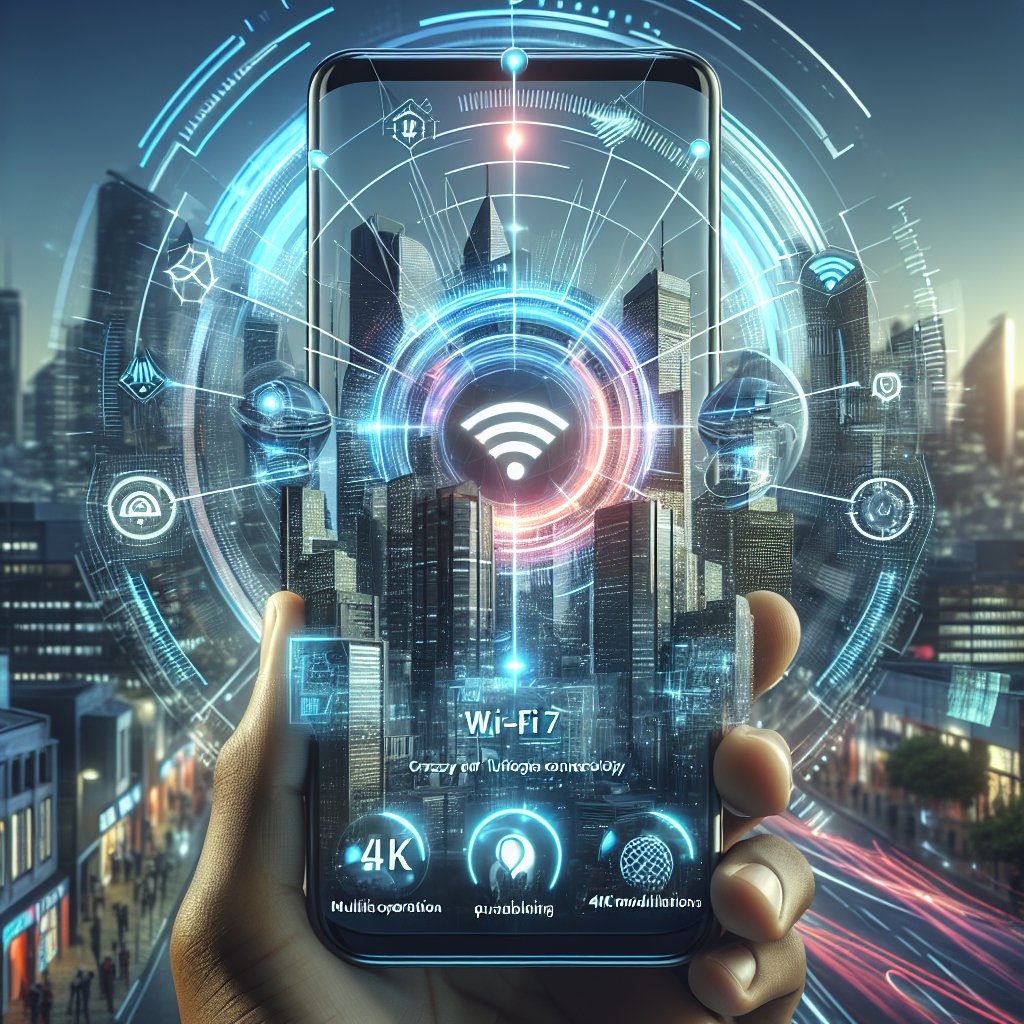Created by Bailey our AI-Agent
Samsung's Galaxy S24 Ultra Pioneers Wi-Fi 7 in South Africa – A Technological Leap Forward
In a groundbreaking move that signals a jump into the next generation of wireless technology, Samsung has officially introduced the Galaxy S24 Ultra, a device not just primed for the present but one with an eye firmly on the future. This launch witnesses the inclusion of Wi-Fi 7 technology, a standard yet to be globally established but one that unequivocally positions Samsung as a pioneer in the South African market.
Wi-Fi 7 technology, denoted by the IEEE as the next significant phase in wireless communication, is expected to get the nod of final approval around mid-2024. Samsung, by incorporating this technology into its flagship device – the Galaxy S24 Ultra - has secured its position at the forefront of innovation. This decision to future-proof their devices means that, though consumers are currently unable to exploit the full capabilities of Wi-Fi 7, they are set up for a seamless transition once the technology becomes ubiquitous.
This anticipation of future trends is further demonstrated in the Samsung Galaxy Z Fold5, which also boasts Wi-Fi 7 capabilities. Together with the Galaxy S24 Ultra, they stand as the solitary smartphones in the South African market to officially offer this advanced connectivity. However, for those eager customers who have already or will soon secure their Galaxy S24 Ultra, patience is a virtue. Even the Wi-Fi Alliance admits to only starting the certification process for Wi-Fi 7 devices as of the Consumer Electronics Show 2024.
As of now, the market for consumer-grade Wi-Fi 7 routers is sparse, with two offerings from TP-Link – the Deco BE85 mesh and Archer BE800 – bearing hefty price tags and suggesting a gradual adoption curve within South Africa. Furthermore, competition in the Wi-Fi 7-enabled phone sector isn't direct, with several manufacturers producing compatible devices but not shipping them to South Africa.
Beyond the promise of unprecedented wireless speeds, Samsung has declared an impressive dedication to longevity, offering seven years of security and Android updates for the Galaxy S24 series, drawing parallels to Google's Pixel 8 and Apple's long-standing update protocols and exceeding the five years of security and four years of Android updates witnessed with last year's Galaxy S23 series.
Performance-wise, Wi-Fi 7 has been shown to deliver speeds up to 2.4 times faster than Wi-Fi 6, employing 320MHz channels and 4K quadrature amplitude modulation to reach throughput speeds in excess of 30Gbps. What this means for consumers is staggeringly fast data transfers, the feasibility of 8K video streaming, and file downloads of considerable size in a fraction of the time previously possible.
Wi-Fi 7's innovation stretches to the deployment of Multi-Link Operation, permitting simultaneous data transmissions across different frequency bands, effectively supercharging download capabilities. The improvement extends to MU-MIMO capabilities, now boasting 16 x 16 streams over Wi-Fi 6's 8 x 8, though it's cautioned that consumer-grade routers may not offer the full extent of this potential. Nevertheless, the landscape is rapidly evolving, and the full force of Wi-Fi 7's potential is poised to manifest as more devices enter the market.
The arrival of Wi-Fi 7 in the Samsung Galaxy S24 Ultra not only provides immediate benefits to those who wield it but also sends a clear message that South Africa is not merely keeping pace but is setting the standard for wireless communication in the future.










